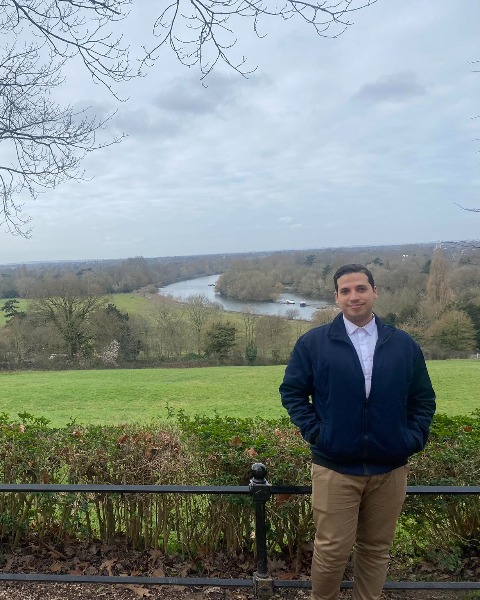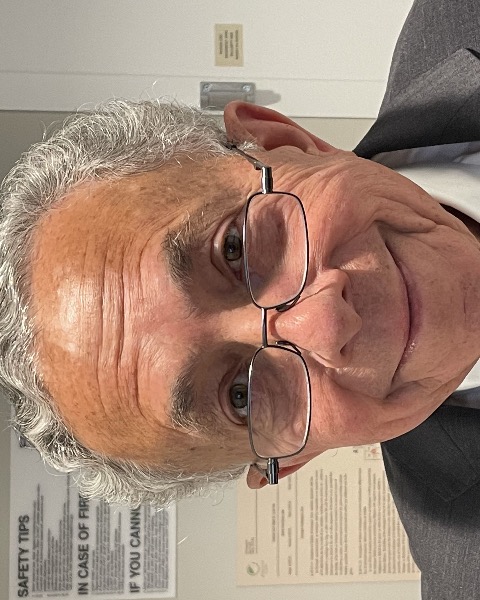SIR 2025
Nonvascular Interventions
Scientific Session
Hypertension crisis management during radiofrequency ablation of aldosteronomas: A single center experience utilizing an intermittent ablation technique without preprocedural alpha blockade.
- AM
Ahmad Maaly, MD
Postdoctoral Research Fellow
Beth Israel Deaconess Medical Center/Harvard Medical School, United States 
Mohammed Elkholy, MD
Postdoctoral research fellow
The Laboratory for Minimally Invasive Tumor Therapies, Department of Radiology, Beth Israel Deaconess Medical Center/Harvard Medical School, Boston, Massachusetts, United States of America, United States- SF
Salomao Faintuch, MD
Interventional Radiologist
Beth Israel Deaconess Medical Center - Harvard Medical School, United States 
Barry Sacks, MD
Faculty Interventional Radiologist
Beth Israel Deaconess Medical Center - Harvard Medical School, United States- MA
Muneeb Ahmed, MD, FSIR
Professor of Radiology
Beth Israel Deaconess Medical Center/Harvard, United States 
Marwan Moussa, MD
Instructor of Radiology
Beth Israel Deaconess Medical Center/ Harvard Medical School, United States
Presenting Author(s)
Author/Co-author(s)
Hypertensive crisis is a frequent complication during adrenal radiofrequency ablation (RFA). Multiple methods have been proposed to lower the incidence of complications associated with the rise in blood pressure during RFA. We report our single center experience of incidence, management and outcomes of intraprocedural hypertensive crisis during 1) intermittent RFA of aldosteronomas and 2) without preprocedural alpha blockade. Intermittent RFA is defined as turning off ablation once systolic blood pressure ≥ 160 mmHg and restarting once the SBP is ≤ 120 mmHg.
Materials and Methods:
This retrospective study included 57 primary aldosteronism (PA) patients treated with RFA between 2007 and 2023. Clinical data collected included demographics, preprocedural alpha blockade, highest recorded SBP and DBP during ablation, ECG tracings, intraprocedural hypertensive medication use and timing in relationship to onset of a hypertensive crisis, max tip temperature, size of aldosteronoma, ablation duration and post procedural outcomes. Primary outcomes were identified as incidence of hypertensive emergency (SBP ≥ 180 and/or DBP ≥ 120 with end-organ damage) hypertensive urgency (SBP ≥ 180 and/or DBP ≥ 120), and periablational arrythmias. Logistic regression analysis of impact of age, anti-hypertensive medication number, combinations and timing of administration, max tip temperature, adenoma size and ablation duration on incidence of hypertensive crisis was performed.
Results:
Among the 57 patients, 39 were male and 18 female (mean age of 54.6 years). None of the patients were premedicated with alpha blockers. No patients developed hypertensive emergency, however, 36 patients (63.2%) developed hypertensive urgency. 33 patients (57.9%) developed arrythmias (Sinus bradycardia, Sinus tachycardia, PVCs), 22 of which (66.7%) developed during the rise of blood pressure. Logistic regression demonstrated no correlation between incidence of RFA induced hypertensive crisis and age, anti-hypertensive medications numbers, combinations and timing of administration, adenoma size or duration of ablation.
Conclusion:
Intermittent RFA with aggressive intraprocedural antihypertensive management is a safe approach for management of hypertensive crisis in aldosteronoma patients without preprocedural alpha blockade. The incidence of hypertensive crisis does not correlate age, number of anti-hypertensive medications, combinations of different medications, timing of administration, adenoma size and duration of ablation. Larger studies are required to validate these findings.


.jpg)